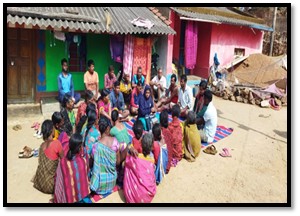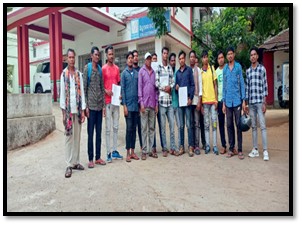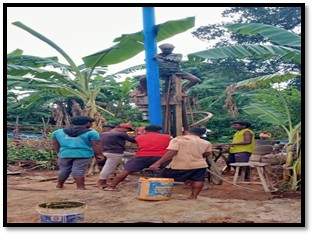
Water for Life: A Grassroots Victory in Suliyamari Village
Case Study: “Water for Life: A Grassroots Victory in Suliyamari Village”
Background
Suliyamari is a remote tribal village situated under the Kotiya Panchayat in Koraput district, home to 32 tribal families. Despite having basic infrastructure, the village faces a critical shortage of clean drinking water throughout the year. For many years, villagers relied on canal water to meet their drinking needs, leading to the spread of various waterborne diseases. Repeated complaints to local authorities, including the Gram Panchayat (GP) office, Block office, and Collector office, yielded no effective response, leaving the community vulnerable to health risks.
Intervention by EKTA, Koraput
In 2024, EKTA, a Koraput-based NGO, initiated efforts to address the challenges faced by Suliyamari village. As part of their intervention, they established a Village Development Committee (VDC) to empower local residents in identifying, addressing, and advocating for solutions to their issues. EKTA facilitated training sessions for VDC members, educating them on their roles and responsibilities, including:
- Identifying key issues impacting the village.
- Preparing and submitting formal memoranda to relevant government departments.
- Organizing regular monthly meetings to discuss and strategize on issues
Key Activities and Initiatives
Through these monthly meetings, VDC members prioritized the critical issue of drinking water scarcity. With the assistance of EKTA, the VDC members devised a strategic action plan to advocate for the installation of sustainable water sources in Suliyamari. A detailed memorandum highlighting the drinking water crisis was prepared and submitted to the Collector’s office.
Outcome
Following the submission, the Collector’s office approved the installation of two bore wells in Suliyamari village. This development significantly improved access to safe drinking water, alleviating a longstanding issue for the villagers. The success of this initiative enhanced trust within the community toward the VDC, marking a milestone in local self-governance and advocacy.
Community Impact
The installation of bore wells has brought relief to the villagers, who now enjoy improved health due to access to clean drinking water. The VDC’s active involvement has strengthened the community’s capacity to address future challenges. This case serves as a model for community-driven development, underscoring the importance of grassroots mobilization and institutional support.
Conclusion
The Suliyamari drinking water project illustrates how collaborative efforts between local communities and civil society organizations can drive positive change. The VDC, empowered by EKTA’s support, demonstrated effective advocacy that not only brought clean water to the village but also inspired greater community participation and ownership. This success story underscores the potential of VDCs in tribal regions to work actively for the welfare of their communities and tackle pressing issues through persistent and well-organized advocacy.






